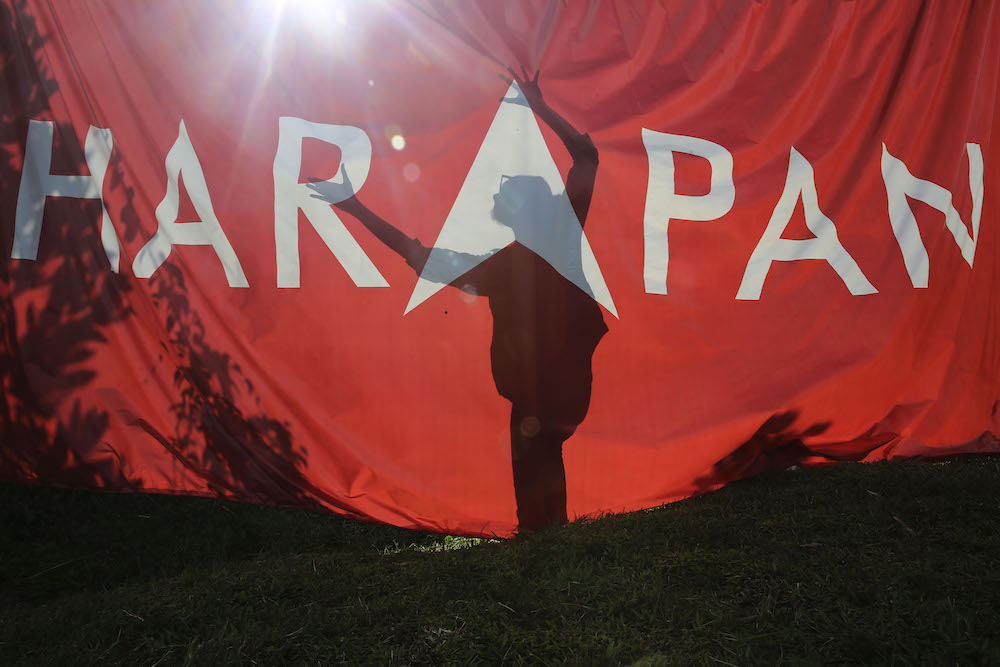KUALA LUMPUR, May 1 ― Despite Pakatan Harapan’s (PH) pledges, parliamentary reforms have made little headway in Malaysia Baharu after one year, according to think tank Kajian Politik untuk Perubahan (KPRU).
The research organisation said a new culture had sprouted in Parliament under the new coalition that replaced Barisan Nasional (BN), but added that the lawmaking process was still very much a rubber stamp of the Cabinet.
KPRU executive director Ooi Heng pointed out that the increase in civil society engagement with parliamentarians was one of the few good examples of reforms where NGOs can voice their demands to MPs through briefings and dialogues regarding the issues.
“During the Barisan Nasional era, the civil society were mainly dealing with the then-Opposition, and some civil society organisations were being perceived by the then-BN government as ‘anti-government’ or ‘anti-establishment’,” he said in a statement today.
He also lauded the government’s effort to push for transparency by publishing Oral Answers to the Parliament website as not all questions asked by MPs were answered by the relevant ministries in the Dewan Rakyat, stemming from time constraints.
Ooi noted that questions not answered in the lower House would be answered by the ministry in writing (Oral Answers) while questions which require a detailed written answer would have both the questions and answers in writing (Non-Oral Answers).
“During the BN era, the general public had no access to both materials, as they were only published and circulated internally within the Parliament and among MPs.
“They would come into spotlight only if MPs who had access to them publicise it through the press or social media. By allowing the general public access, it shows that there is indeed ‘nothing to hide’,” he said.
Despite the formation of the Select Committees in Parliament by PH, Ooi said doubts were raised as to whether these committees were indeed functioning as there was no live broadcast and no Hansard on the meetings being conducted behind closed doors.
“The people must be at least given the opportunity to observe the meetings of the PAC, as well as the Special Select Committees, just as they are able to observe the sittings in both Houses of the Parliament,” he said.
In the effort to implement parliamentary reforms, Ooi also suggested a session allocated for private members’ bills and motions to be debated as it will encourage lawmakers from both the ruling coalition and the opposition to contribute in policies’ making.
He cited how Datuk Seri Abdul Hadi Awang’s private members’ bill to amend the Syariah Courts (Criminal Jurisdiction) Act 1965 (RUU355) in 2018 was not given priority over government bills and motions.
“This will empower the legislative branch instead of having the executive branch monopolising the matter,” he said.
Ooi also said the restoration of the Parliamentary Services Act for the purpose of separation of power by PH was another reform yet to materialise despite being promised in its Buku Harapan manifesto.
“We are looking forward to the Act’s restoration by 2020 which is being spearheaded by PKR president Datuk Seri Anwar Ibrahim who also heads the Parliamentary Caucus on Reform and Governance,” he said.
He also urged to have the Order Papers and government bills made available immediately after being finalised ― the first part by 5.30pm and government bills within 15 minutes after tabled for first reading ― through the use of technology as the general public deserve the right to read a bill once it is tabled before being debated.
Citing the recent failed Federal Constitution amendment bill in the last Parliament sitting, Ooi said publishing bloc division details in the Hansard was necessary to ensure accountability of the MPs to the people.
“It was only made known to the public that there were 138 ayes and 59 abstentions, therefore we were unable to determine exactly who casted the votes. Only after a minister’s Facebook post we were able to see which MPs cast their votes.
“Parliament should be the one officially publicising their identities regarding their votes in the Hansard, not any Cabinet member,” he said.
Ooi however remained optimistic with the yet-to-implement reforms, pointing out that Parliament will eventually be an effective check-and-balance against the executive and judiciary branches.
“By having a series of reformations, we believe that the Parliament will eventually be an effective check-and-balance against the executive and judiciary branches.
“It will also allow lawmakers to have a greater say in making laws and policies as well as being more accountable to the people who have voted in the lawmakers.



















